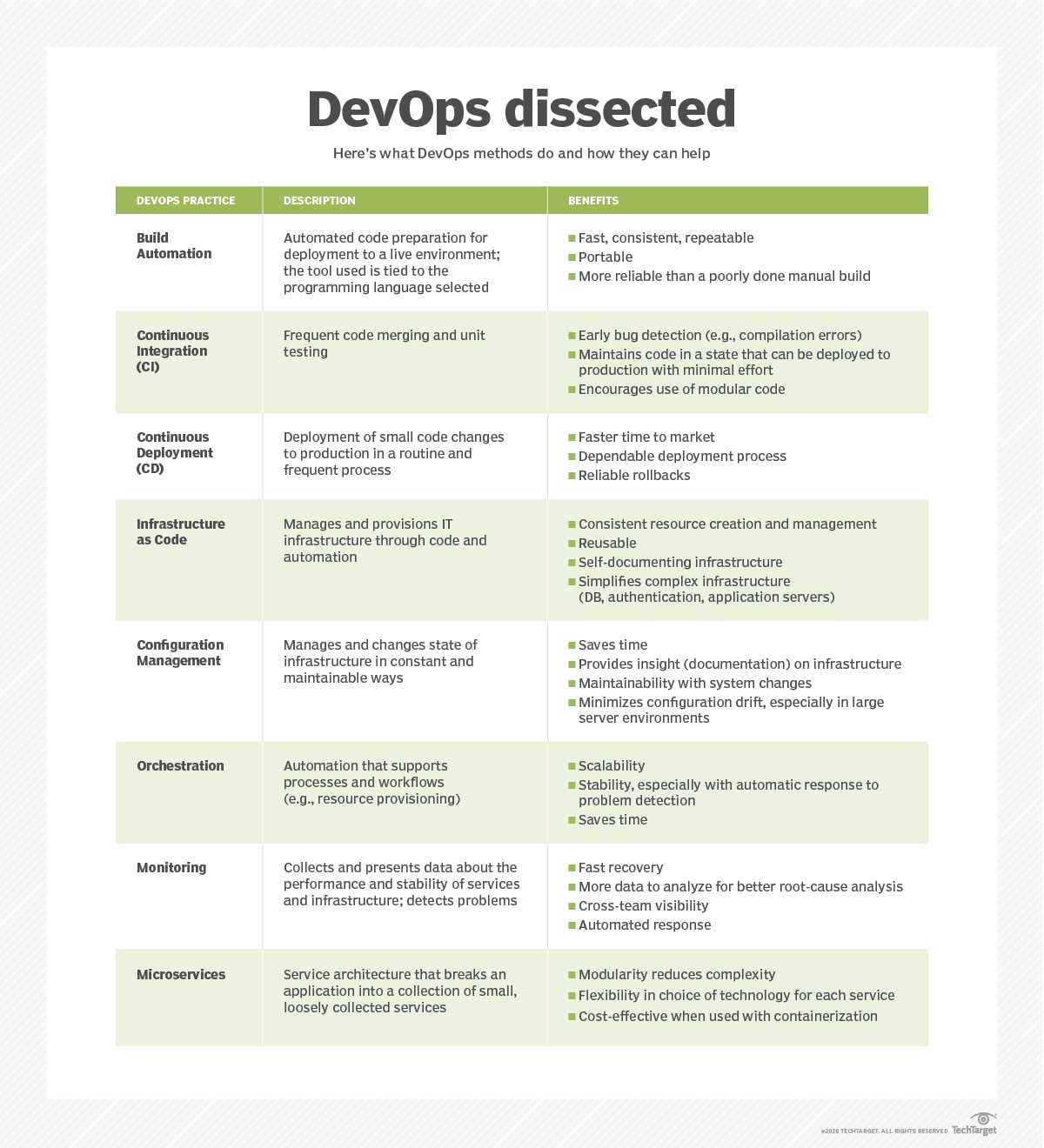Table of contents
What is DevOps?
How does DevOps work?
Relationship between DevOps and Cloud
The benefits of Cloud-based DevOps
DevOps in the Cloud improve productivity
Can DevOps in the Cloud improve control?
Making the most of Cloud DevOps
Finishing thoughts on DevOps in the Cloud
Every day, software development teams are constantly seeking out better tools, techniques, and approaches for building and deploying the best tools. The cloud, for many of today’s’ most innovative creators, is a flexible and scalable path to success. It offers new solutions for security, automation, and growth.
Integrating DevOps into the cloud gives companies a better way to compete in a complicated and ever-changing marketplace. Instead of reinventing DevOps, the key to successful cloud integration involves executing and adopting the best engineering practices.
Often this means updating the underlying architecture and modernising an environment for redeployment into the cloud. Today, we’re going to discuss what it means to move DevOps into the cloud for modern companies.
What is DevOps?

DevOps is a practice followed by businesses for the production and release of the software. Despite some people’s beliefs, it’s not a title for people working in a specific organisation or a tool you can deploy. Instead, DevOps is a method for delivering services and applications at a rapid pace. The method of development integrates with software development and operations for a single process with a focus on automation and streamlining.
The purpose of DevOps is to have various small enhancements constantly instead of various periodic big releases. This process allows companies to create a better quality of software products seamlessly and efficiently. The term “DevOps” is also sometimes used to refer to a company culture that facilitates effective communication, collaboration, and integration between operations teams and developers.
The main advantages of DevOps in the current landscape are:
- The effective automation of application release
- Infrastructure automation options
- Continuous integration and delivery
- Faster delivery of features with agile frameworks
- Rapid problem resolution
How does DevOps work?
Under a DevOps model, operations and development teams aren’t siloed as they would be in other development environments. In some cases, these two teams even merge into a single team where the engineers can work across the entire application lifecycle, from the point of development and deployment, through to operations.
You can develop a range of skills not linked to a single function here. In some circumstances, security solutions and quality assurance become more involved in the application lifecycle. When security is the focus for everyone on a DevOps, the team becomes a DevSecOps solution.

With a DevOps environment, teams use various practices to automate processes that have been manual and slow in the past. They use the latest technology available to evolve applications as quickly as possible. For instance, in DevOps, deploying code and provisioning infrastructure that would have previously required help from other teams increases the team’s velocity.
How are DevOps and Cloud related?
Both cloud and DevOps have a variety of benefits to offer in the world of an agile business. Cloud technology ensures that companies can access an endless range of features and solutions at a speed that suits them. With the cloud, there’s no limit on how much functionality a company can access. Cloud tech makes it easy to upgrade and enhance features in any environment fast.
In the same way, DevOps supports an agile environment for everyone involved. Both solutions have their own benefits to consider for speed and productivity. However, when the cloud and DevOps come together, they enhance each other’s strengths to create an even more compelling offering.
Clouds are built and designed in a way that allows them to take full advantage of all DevOps methods. The cloud provides tools for centralised deployments and can offer support for DevOps built-in. For instance, if DevOps teams need to assemble the components for a solution in a specific way, the advanced automation capabilities of the cloud can streamline the process and make it more repeatable.
Deloitte Consulting’s Chief Cloud Strategy Officer, David Linthicum says that DevOps is one of the main factors currently dictating the direction of cloud development.
The benefits of Cloud-based DevOps

Cloud solutions and DevOps work perfectly together in an environment that’s built for agility and flexibility. DevOps and the cloud, when combined, can make a huge difference to the software development lifecycle. Companies that employ DevOps in the cloud can achieve an average of 81% boost in software delivery performance.
As part of one study, over 900 IT professionals around the world were surveyed on how they achieve success in the current landscape. Those who used DevOps on its own achieved a 52% increase in performance. Those who used cloud on its own saw a 53% increase in performance. However, the companies using both DevOps and cloud increased their performance by 81%.
The major benefits of cloud-based DevOps include:
- Cloud-Centric automation options
Automation is a vital tool to make DevOps efficient. Many cloud platforms provide advanced tools for automation through DevOps processes like continuous development and continuous integration. CircleCI, Jenkins, GitLab, and Travis CI are all examples of such tools used for continuous integration. These tools offer consistency and speed, with less human interaction.
- Centralised platform
The cloud provides a centralised platform where companies can handle everything from testing, deployment, monitoring, and operating their production workloads. That makes it easier to keep track of everything in the same space. When all of your information for DevOps is in the same place, it’s easier to manage things like compliance and security. You can even get more meaningful insights and business intelligence this way.
- Scalable infrastructure
The cloud is the best way to ensure that you can upscale or downscale any infrastructure as and when needed, without spending a lot of money and time on systems. This scalability means that DevOps is a very efficient solution for rolling out new features, functionality, and opportunities as your business grows. You can combine the cloud with the agility of DevOps to access endless development opportunities for your organisation.
- Agile development
The cloud can provide various staging and testing servers, so DevOps teams have the freedom to wait for servers to become free and available to continue their work. Using DevOps throughout the cloud environment encourages better experimentation for teams, as builds can happen more rapidly. DevOps teams can quickly provision servers that are suitable for them.
- Uptime and stability
As cloud providers focus on uptime and stability, they can take care of all the management and maintenance elements of the platform. Rather than worrying about these issues, IT companies can focus on product development to result in improved product performance, improved user experience, and faster time to market. The key to success here is choosing a cloud provider that can provide the right reliable level of uptime for your business.
How can DevOps in the Cloud improve productivity?

When an enterprise leader looks for opportunities to enhance app development processes with DevOps solutions, they often discover that DevOps can only do so much by itself. As agile as DevOps can be in the right circumstances, the process outside of the cloud is often bogged down by prolonged processes. Purchasing hardware and software means that the development process grinds to a halt, even if it’s managed in an agile way.
The development team needs to wait in a traditional environment for all the infrastructure to be developed before deploying applications. A lot of teams find that DevOps can’t achieve its full potential with the extra boost provided by the scalability of the cloud.
When a team properly implements DevOps, it can remove a lot of the latency and inefficiency that exists for conventional software development teams. Since cloud computing is centralised and scalable, it provides DevOps strategies with a standard platform for deployment, testing, and production, as well as integration.
DevOps gives teams the freedom to readily grow and adapt according to their changing requirements. The distributed nature of some enterprise environments won’t fit with pipeline-based centralised systems for software deployment. With the cloud platform, it’s easy to overcome the common issues of legacy systems and speed things up.
As teams continue to recognise more benefits, DevOps automation becomes more cloud-centric and immersive. Most cloud computing providers now deliver full and integral toolsets for this purpose. A lot of cloud service partners can even offer access to continuous integration and continuous development tools. Tight integration for CI/ CD will significantly reduce costs in comparison with on-premises solutions for DevOps automation.
How can DevOps in the cloud improve control?
Aside from making teams more efficient and productive, DevOps solutions in the cloud can also provide a more centralised and efficient environment for governance purposes. This supports more elaborate deployment processes in the landscape. However, it also means that developers who participate in these processes are less likely to struggle with security and other issues.
DevOps professionals often find that it is much easier to manage all their processes centrally through the cloud. More control and a more app-specific infrastructure make it much easier for team members from all environments to maintain ownership over various components. Developers can also exploit various cloud tools and services to automate certain tasks and processes. Using the code to manage and provision resources, teams can improve the momentum of various development processes.
The level of automation available within Develops on the cloud can often eliminate cases that are common with human error by establishing repeatability. Companies using DevOps in the cloud can even establish self-service automation for different levels of infrastructure provisioning. This removes any dependency on IT operations for provisioning resources. Developers can run a variety of experiments and determine what does and doesn’t work faster.
At the same time, developers have the chance to build variants of their solution that allows them to find more optimised solutions. The DevOps environment in the cloud virtually removes the lengthy queue and development times to create more efficient integration and deployment experiences.
Making the most of Cloud DevOps
Ultimately, making the most of DevOps in the cloud starts with using the right cloud provider. You need to ensure that you understand all the needs of your development team, and the kind of technologies they’re going to use in their new environment.
Defining all of the requirements of your development team and the DevOps processes in place will help you to figure out what kind of cloud environment you need. However, it’s worth remembering that the processes and demands of your DevOps team are likely to change regularly. The agile nature of DevOps means that a cloud needs to be flexible enough to adapt on an almost constant basis.
It’s also crucial to ensure that your entire team is on board with the concept of DevOps. Everyone needs to be doing everything they can to integrate DevOps and have it drive the right cloud-native development. This can be a challenge for a lot of organisations implementing cloud and DevOps processes for the first time. You might need to start by implementing cloud, then introducing your team to the potential of DevOps afterwards.
A carefully chosen strategy for rolling out new DevOps solutions and cloud systems will be essential for driving new opportunities for your business as you move into a new era of DevOps.
Finishing thoughts on DevOps in the Cloud
All aspects of the cloud have grown increasingly popular in recent years. Companies of all sizes can see that a cloud environment gives them access to the flexibility and scalability to grow at a pace that’s right for them. Just as cloud communications continues to grow, the cloud for development and application management processes is becoming more appealing, too when your team can begin to exploit the full benefits of the cloud for DevOps.
Soon, you’ll notice that you’re following a wide range of DevOps practices to make your entire team more efficient. When that happens, the performance and efficiency of your team are sure to skyrocket. With the right cloud provider to guide and support you, there’ll be no limit to what you can accomplish with your DevOps team and the cloud.
Get details on the security and trust built into RingCentral products and services.Download the white paper
Originally published Nov 18, 2020, updated Jan 16, 2023



